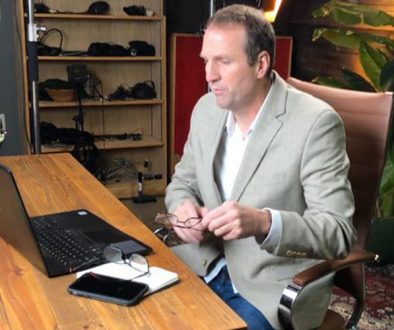5 Guaranteed Ways To Avoid The Busyness Trap
Many times when I meet someone and ask “How is it going?” the person will answer “I’m doing well…just really busy”! In addition, I know that I will frequently offer a similar response when I am asked about life. This concept of busyness is an interesting thing to contemplate. Busyness is at the same time something to be proud of and something that creates serious stress and anxiety in people. Our culture values achievement and work is held in high regard. It is logical then to assume that being busy is a positive quality. However, as we become more aware of the dangers associated with stress a new emphasis is arising. There is a rising movement around stress management, time management and “work-life balance”. These concepts promote more serene daily routines.
I have become somewhat obsessed with all the different advice and “programs” that are offered as an answer to the problem of being “too busy”. If you go to the Barnes and Noble self-help section you can find hundreds of titles that address this topic. Google “busyness” and millions of results pop-up with a myriad of solutions to the productivity trap. I have put in some real work evaluating these various solutions. In addition, I have drawn on my own experience in coaching people to summarize the 5 most useful methods of managing “busyness”. So here you go… hope you are not too busy to read this:
- Morning Routine: Starting your day with a morning ritual or routine is essential to “slowing things down” and feeling under control. Much has been written about the connection between morning routines and success. Setting the tone by giving yourself time to ease into the day is the cornerstone to managing your time. In this context I am not concerned with content or the specific activities of the routine. Instead I am encouraging you to simply give yourself enough time to not feel rushed. The steps associated with giving yourself enough time in the morning are straight forward; it’s not rocket science:
- Go to bed earlier.
- Get up earlier.
Wow… I am a freaking genius. This is one of those areas where you “just do it”. People can write books on getting up early but I find that ridiculous. It takes no secret knowledge to get up earlier. I say keep trying to get to bed earlier and keep trying to get up earlier. Don’t overthink it when you fall short and simply try again the next day. Getting up early will eventually become a new habit.
2) Own your schedule: This is an area that also seems very straight forward. However, there are some very practical tips and principles that can help in this area.
- Get a calendar: I know this may seem like too simple a suggestion to be found on a life changing blog like this. However, I don’t assume anything so let’s start here. Many people use their state of the art smart phone and its calendar application. That is my recommendation as you probably already carry your phone with you everywhere you go. If you are into paper and pen that’s all good as well.
- Remember that NO is a complete sentence: Start prioritizing your commitments. If you feel overwhelmed take some time to scan your appointments and meetings. Assess your schedule to see if there are any meetings that you could have declined or if the time allotted could be lessened. Most people simply give in and ignore this concept. They behave as if they were powerless over the situation; as if they have zero control over their schedule. I would be willing to wager that there are some meetings that you could opt out of. If you are a manager this means you will need to trust other people. You will need to take a chance that things will work out even if you are not at the table. If you are a parent you may need to avoid enrolling little Suzie or Johnny in piano lessons, or Vietnamese cooking classes, or competitive pogo jumping. You will need to trust that your value as a parent is measured over the long term in terms of unconditional love not in the short term in terms of the world’s busiest soccer mom. JUST SAY NO.
- Honor commitments to yourself: Set aside time during the week for yourself and honor these commitments. If you have a meeting scheduled with a colleague at work you are unlikely to cancel the appointment just because something else comes up. That is not always the case where time for yourself is concerned. Many times you will simply ignore your own time and put someone else’s agenda in your time slot. I would recommend you actually schedule “down time” where you can engage in self-care. Use these opportunities to spend time outside or to engage in creative activities or just spend time on strategy. The best return on investment would be time spent in silence doing what appears to be nothing in particular. This will take a great deal of determination because spending time in stillness will initially feel like a waste of time. However, if you persevere your efforts will pay dividends.
3) Watch out for the subconscious “craving” for busyness: Remember that we are a society that values busyness. Working hard and working long hours can be seen as a positive. Many people want to be seen as being busy because it can be viewed as a sign of importance. Along the same lines people will feel inadequate if they are not busy enough. This cultural norm is starting to change. The millennials are not at all interested in being perceived as overly busy. As a matter of fact the millennials seem to be perfectly content with being under-whelmed. However, there is a sense among older generations that being stressed and over-worked is a badge of honor. If you have that message encoded within your psyche you will be naturally drawn to over scheduling. Busyness will be attractive to you and it will be difficult to not fall into that over-booked lifestyle. The best way to combat this issue is awareness of the positive associations you have connected to busyness. This allows you to think it through and challenge some of the irrational and unhealthy thoughts associated with these beliefs. One other thing that will help in this area. Stop saying “busy” when someone asks “how you are doing”. “Busy…real busy” is not actually a possible answer to the question “How’s it going”. Make a commitment to yourself that you are going to stop proclaiming your busyness.
4) Watch out for the ever present pull of technology: Today’s world is amazing. You can access information instantly. You can connect with friends and family and share information about your life across a wide variety of platforms. In addition, you can stay continuously connected to the workplace. These advancements are wonderful. When used efficiently technology can contribute positively to your quality of life. However, technology is just as likely to suck up all your free time without you even being aware of it. Maintain an awareness of how technology and social media impact your life. Some people have actually tracked their time in an effort to gauge how much time they spend in mindless technology-based activities. Many  have been surprised by the results. I don’t necessarily endorse a detailed time track (because that would take too much time). However, I do advocate a high level scan of how you use technology. Be honest with yourself and assess your relationship with your iPhone, iPad, laptop and make the necessary adjustments.
have been surprised by the results. I don’t necessarily endorse a detailed time track (because that would take too much time). However, I do advocate a high level scan of how you use technology. Be honest with yourself and assess your relationship with your iPhone, iPad, laptop and make the necessary adjustments.
5) Focus fully on whatever activity you are engaged in: David Allen in his Getting Things Done (GTD) protocol talks about maintaining an attitude that whatever you are doing is the best thing to be doing at that exact point in time. This helps you avoid the brain drain and distraction associated with doing one task while being pre-occupied with another task. For example, if you are writing a blog post concentrate fully on the blog post and don’t spend time being guilty that you are not paying the bills. Without getting deep into the details Allen advocates his GTD system as a means to accomplish this goal. For the purposes of this post I endorse his principles of present focus but encourage a more basic mindset to accomplish this:
- Mindfulness: The topic of mindfulness is just straight up getting worn out. It is everywhere in mainstream society. Once something is featured on Oprah and the Ellen show it loses all status as something new and innovative. In all honesty I have gotten tired of hearing about mindfulness. However, you can’t argue with the importance of bringing your full attention to the task at hand. Multi-tasking is ineffective and you will be more effective if you focus. Practice mindfulness on a regular basis so that you can bring it to bear in the domain of managing your time and managing your life.
- Take control of your thoughts: If you find yourself engaging in negative self-talk related to task engagement (ie..”I should be doing something different…”) reframe your thinking. Write these “other” activities down in an effort to manage the cognition. Tell yourself you will get to the other tasks at another time.
- When in doubt start something: If you cannot decide what task is the best task at a given time just get moving. Don’t overthink. Simply move into action even if it is not the optimal activity or project. Getting yourself in gear will very likely shake loose other thoughts and provide clarity regarding prioritization.


